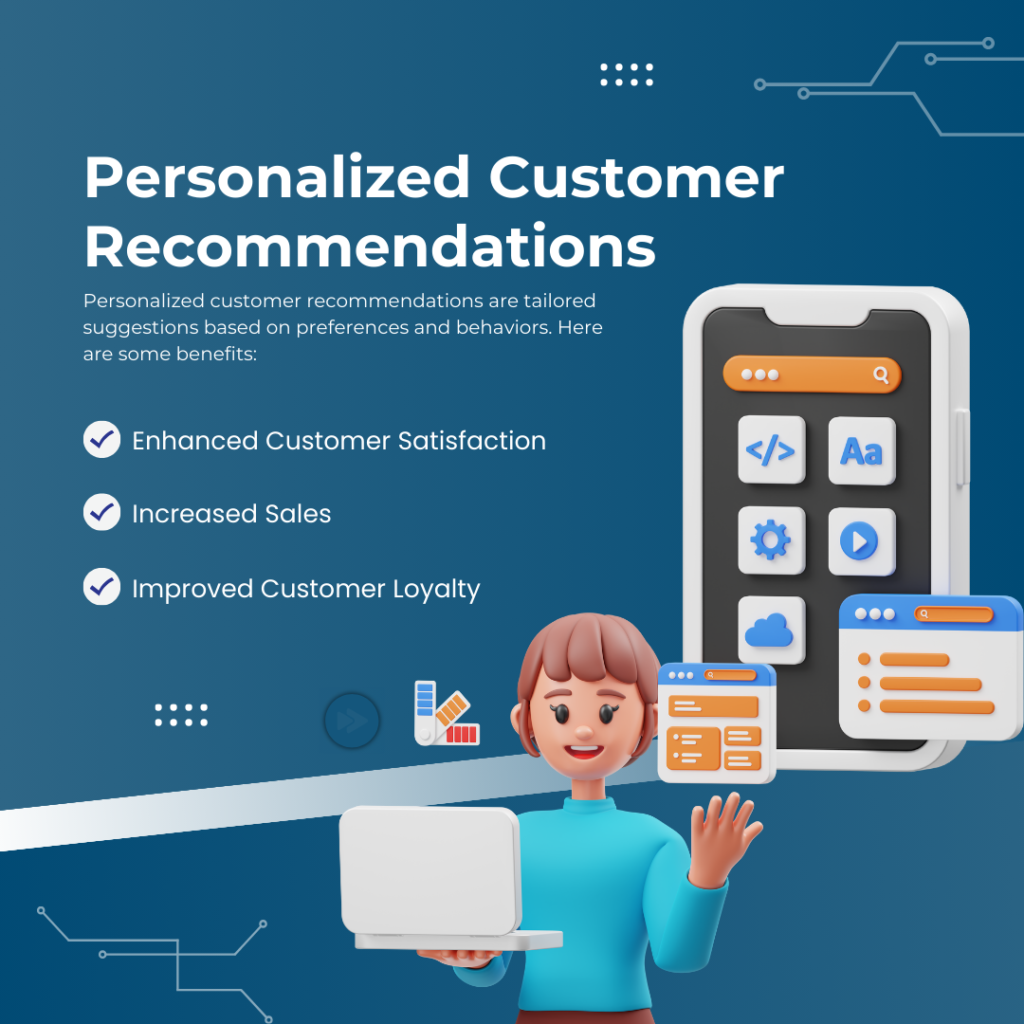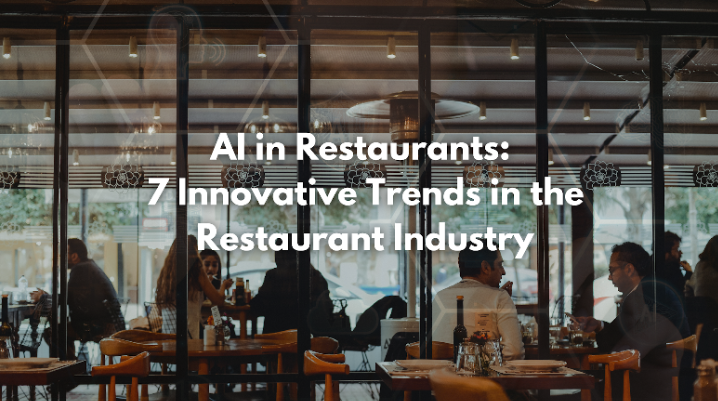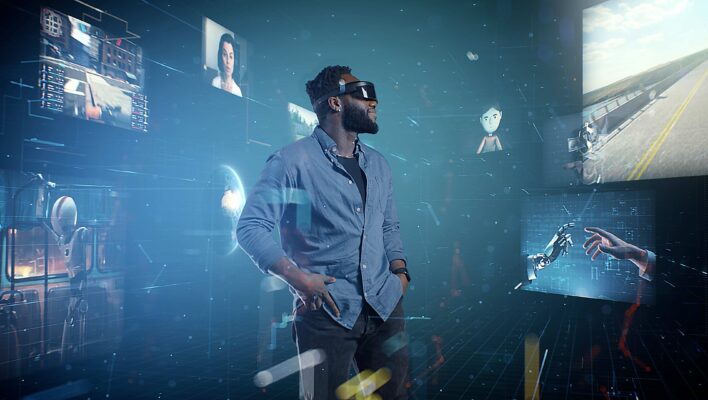Artificial intelligence is changing the way restaurants operate—from streamlining operations to enhancing customer experiences, AI is rapidly becoming an integral part of the restaurant industry. As competition increases, restaurants are relying more on advanced technologies to stay ahead. This article will explore seven innovative trends where AI is making its presence most felt.
Predictive Analytics for Inventory Management
One of the most significant changes in restaurants is the transformation brought by AI-powered predictive analytics in inventory management. Historically, balancing inventory with accurate yet optimal stocking levels has been a continuous struggle for restaurants, leading to either food AI in Restaurants: 7 Innovative Trends in the Restaurant Industry or stockouts. In this context, AI provides deep analysis of big data, including past sales, customer preferences, and external factors such as weather or local events.
By utilizing machine learning algorithms, restaurants can make precise predictions about demand fluctuations and adjust their inventory to prevent overstocking or shortages. That is a preventative approach to reducing leftovers and making sure that favorite dishes are always in stock. Ultimately, AI-driven predictive analytics helps restaurants optimize costs and enhance overall operational efficiency.
Enhanced Website and Mobile App Experiences
The websites and mobile applications of restaurants continuously change the way customers use them because of AI. The role of AI analytics for restaurant empowerment is to enable personalized users’ experiences that understand considerably different individual preferences and behaviors. For instance, Artificial Intelligence algorithms can analyze navigation patterns of users, search queries, and past interactions to deliver customized content and related promotions. This personalized approach aids in improving user engagement, including online reservations and participation in loyalty programs.
More interestingly, when you visit website or applications, AI-driven chatbots can offer real-time assistance, answer customer queries, and enable smooth transactions. Leveraging AI-led insights, it is possible to optimize user interfaces and how the content is going to reach the users, enhancing the digital customer experience and hence driving conversions and building a powerful brand in the competitive environment.
Virtual Assistants for Customer Support
Artificial intelligence is revolutionizing the concept of customer service in the restaurant sphere. In this regard, the introduction of virtual assistants integrated into the phone and website system of restaurants provides prompt answers to all customer questions, booking reservations, and even the solution to all common problems through an FAQ. Virtual assistants armed with natural language processing and machine learning can now process customer inquiries and reply in real-time, therefore making the whole customer service experience smooth and effective.
For instance, a customer can reserve a table and ask about the menu—all without manual intervention. This automation of regular customer communication allows restaurants to smoothen their operations, reduce waiting time, and, hence, improve their service quality. AI allows virtual assistants to improve customer experience and enables staff to further focus on providing an excellent overall dining experience.
Personalized Customer Recommendations
Knowing what customers like to eat can greatly enhance customer experiences and help in building brand loyalty in the cutthroat restaurant industry. AI algorithms come into play and analyze customer interaction data such as past orders, dietary preferences, and feedback. From such information processing, AI can generate personalized recommendations that meet the taste profile of each customer. Such recommendations can seamlessly integrate into a restaurant’s website or on mobile apps, where customers see menu suggestions that perfectly suit them. Personalization resonates with customers, increasing both satisfaction and visit frequency. In fact, AI-driven personalized recommendations are taken in by a specific customer so well that it is even capable of boosting sales and loyalty for restaurants.

Smart Kitchen Management Systems
AI-enabled smart kitchen management systems transform the food preparation and workflow efficiency of a restaurant. These next-gen systems leverage real-time data analytics and machine learning algorithms in optimizing kitchen operations. For example, it can predict peak hours of dining and analyze the demand to prioritize cooking such that customers experience the least waiting time while waiting for their anticipated delivery.
Additionally, smart kitchen systems continually monitor and track ingredient usage and inventory levels to maintain optimum stocks, automating supply chain processes from inventory management to addressing customer demand. This way, kitchen workflows are optimized, and operational bottlenecks are brought down—while the AI increases the efficiency and consistency of a food product. This means that embracing smart kitchen technologies would cause restaurants to increase productivity and work on improving customer satisfaction even further by delivering faster service and offering fresh meals. The ultimate end of AI-driven developments involves smart kitchen management systems that work on meeting increased customer expectations at reduced operational costs.
Predictive Maintenance for Equipment
AI-enabled predictive maintenance will change the management of restaurant equipment, keeping them at an optimal level of performance and decreasing chances for downtime. In addition, the system can integrate with the sensors and IoT devices that allow restaurants to run AI algorithms for real-time health checkups on equipment and predict upcoming failures before reaching the flashpoint. For example, AI can analyze equipment usage patterns, temperature fluctuations, and performance metrics to predict maintenance needs with a good degree of accuracy.
Scheduling proactive maintenance tasks and replacing worn-out components helps restaurants avoid costly breakdowns, extend equipment life, and maintain operational continuity. AI-driven predictive maintenance does not just minimize repair costs and downtime but also improves Kitchen Efficiency and Staff productivity. Investment in AI-driven predictive maintenance solutions will ensure a smooth-running kitchen and allow all restaurants to make sure they continuously create great dining experiences with customers.
Data-Driven Decision Making
AI will enable restaurants to make more data-driven decisions from its various operational functions. AI algorithms, through mining huge amounts of information, can find valuable insights that would guide strategic planning and operations in the decision-making process of an organization. For instance, AI can optimize menu engineering by determining top-selling dishes, forecasting demand for seasonal items, and developing pricing strategies based on competitor reviews.
More so, AI-driven analytics could be used in the organization for marketing campaigns, including targeting specific customer segments and the measurement of the campaign’s effectiveness in real-time. From this, it can be said that AI insights will help these restaurants improve their profitability, optimize resource allocation, and, most critically, help them adapt quickly to this changing market. In the final analysis, the power of AI drives data-driven decision-making that keeps restaurants competitive, operationally efficient, and able to deliver great dining experiences to their customers.
Conclusion
Artificial intelligence has continued to drive innovation within the restaurant business, revolutionizing operational processes and bettering customer experience. The newest opportunities for breakthrough are present with approaches in predictive analytics and personalized recommendations, and everything in smart kitchen management and predictive maintenance technologies. In a fiercely competitive market, breakthrough opportunities for restaurants lie in considerably increasing efficiency, lowering costs, and differentiating through this AI revolution. With AI maturing, restaurants that leverage these innovative trends gain a significant competitive edge and are on the path to sustainable growth, ensuring customer satisfaction in a digitized world.
FAQs
What may be the most important advantages of AI in restaurants?
Due to predictive analytics, AI can bring a lot of benefits in operational efficiency; due to personalized recommendations, it brings superior customer satisfaction; and better kitchen management that enables faster service and quality consistency.
How do AI-driven virtual assistants benefit restaurants?
AI-driven virtual assistants can efficiently assist in customer inquiries, reservations, and FAQs, hence drastically reducing the wait time and improving the quality of service in its totality without continuous human supervision.
What are some of the critical challenges that restaurants may face while adopting AI technologies?
It requires an investment at the beginning for the implementation of AI, integration of AI systems with the existing infrastructure, and training staff for using AI tools to derive optimal benefits from those tools.
Keep an eye for more news & updates on InternalInSider.Com!










